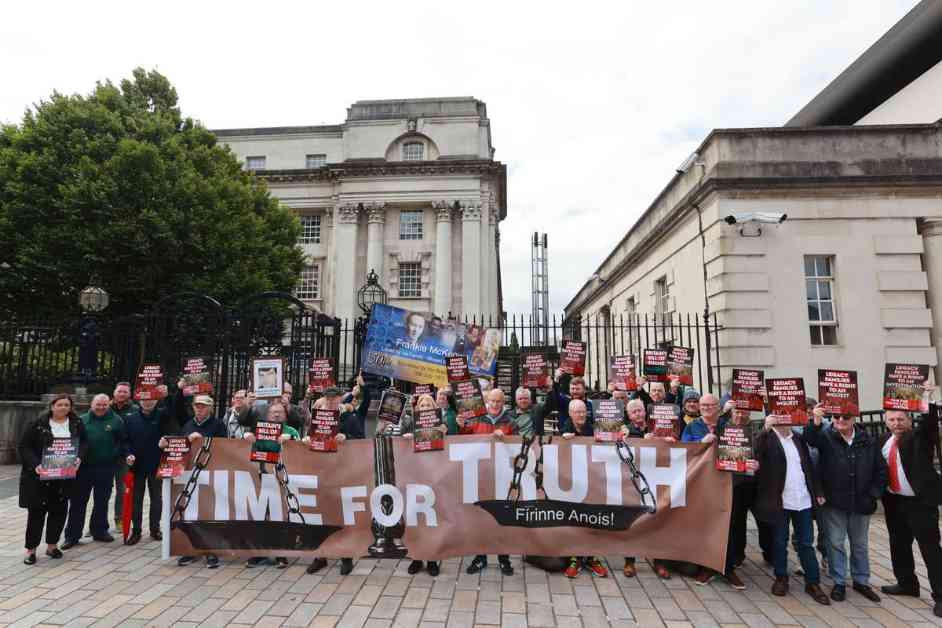Legal Appeal Challenges Independence of Troubles Legacy Act Body
The outcome of a legal appeal challenging the independence of the Independent Commission for Reconciliation and Information Recovery (ICRIR) has been eagerly awaited by many bereaved victims of Troubles murders. The appeal was mounted after a High Court judge ruled that the ICRIR was both independent and capable of conducting human rights-compliant investigations. The High Court’s decision was a blow to those who have criticized the commission for lacking the teeth and independence needed to properly re-examine cases from the Troubles era.
Martina Dillon, whose husband Seamus Dillon was murdered in 1997, took the lead case in the appeal. The case has highlighted the ongoing pain and trauma experienced by families who lost loved ones during the conflict. Many of these families have expressed concerns that the ICRIR may not be able to provide the justice and closure they seek.
Controversial Provisions of the Legacy Act
One of the most controversial provisions of the Legacy Act was the offer of conditional immunity to perpetrators of Troubles crimes who agreed to cooperate with the new truth recovery commission. This provision has been heavily criticized by victims’ families and human rights organizations, who argue that it undermines the pursuit of justice and accountability for past crimes.
The Labour Government has committed to repealing the immunity provision and the Act’s ban on civil cases and inquests related to Troubles incidents. However, the government has pledged to retain the ICRIR, citing the High Court’s ruling that the commission is capable of conducting independent investigations.
Challenges to the February Judgment
The Court of Appeal in Belfast heard the challenge against the High Court’s ruling over five days in June. The lead case among several victims taking the appeal was Martina Dillon, whose husband Seamus was tragically killed in 1997. While the High Court found that the commission was capable of independent investigations, it also declared several other elements of the Legacy Act incompatible with the European Convention on Human Rights.
One of the key elements found to be incompatible was the offer of conditional immunity to perpetrators of Troubles crimes. This provision has raised concerns about the potential for impunity for those responsible for past atrocities. The discontinuation of civil cases and inquests related to Troubles incidents was also deemed incompatible with human rights standards.
Implications of the Windsor Framework
The Legacy Act was found to breach elements of the UK and EU’s post-Brexit arrangements for Northern Ireland – the Windsor Framework. Article 2(1) of the framework states that the government must ensure that various rights entitlements in Northern Ireland, enshrined following the Good Friday Agreement of 1998, cannot be diminished as a result of the UK leaving the EU.
The Conservative government mounted an appeal against this aspect of the ruling, but the Labour Government subsequently dropped the argument. However, the government continued with the challenge to seek clarity on how the Windsor Framework will affect future government legislation in Northern Ireland.
Northern Ireland Secretary Hilary Benn emphasized the importance of the appeal in relation to the Windsor Framework, stating that it would bring clarity on how the framework could potentially impact other government legislation in the future.
In conclusion, the outcome of the legal appeal challenging the independence of the ICRIR will have far-reaching implications for victims’ families and the pursuit of justice for Troubles-era crimes. The decision will shape the future of legacy investigations in Northern Ireland and determine whether the commission is truly capable of providing the accountability and closure that victims deserve.












